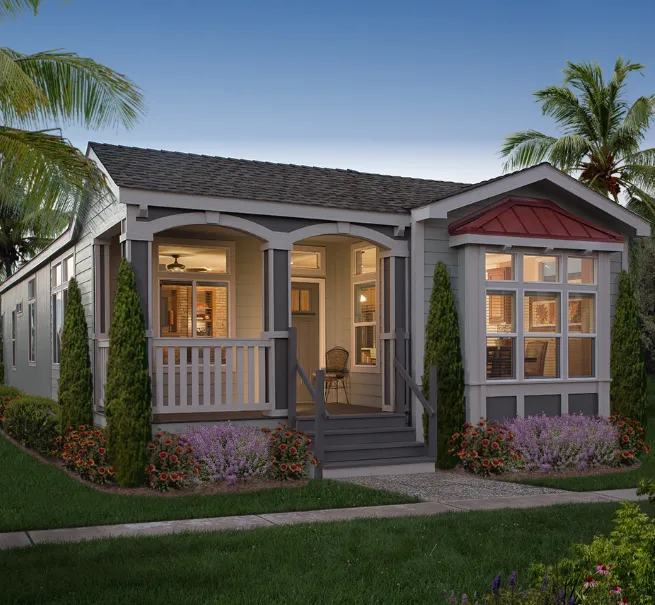Owning a mobile home comes with a unique set of challenges that traditional homeowners don’t face. From extreme weather conditions like tornadoes to the inherent vulnerabilities of the structure, mobile homes need specialized insurance coverage to protect your property and belongings. In this guide, we’ll explore everything you need to know about mobile home insurance and how it differs from traditional homeowners insurance.
What Makes Mobile Homes Different?
The main difference between mobile homes and traditional homes is how they are built. Traditional homes are constructed on-site with a permanent foundation, providing a solid structure. On the other hand, mobile homes are pre-built in factories and placed on a movable chassis, which makes them more susceptible to certain risks like wind damage.
These structural differences are key when it comes to insurance, and understanding them will help you find the right coverage. Let’s dive into the specific aspects of mobile home insurance.
Coverage for Your Home Structure
The primary coverage in a mobile home insurance policy is for the dwelling itself. This type of protection safeguards your home against various threats such as:
- Fire and lightning strikes
- Explosions
- Vandalism
- Falling objects
- Wind and hail
- Accumulation of ice and snow
- Damage from animals
- Burst pipes
When considering coverage, it’s important to ensure that the policy offers enough to fully replace your home if necessary. Many mobile home insurance policies also provide an option for extended replacement coverage, which helps cover unexpected rebuilding costs.
Additionally, some policies may include coverage for structures on your property, such as fences, sheds, or garages that are not attached to the mobile home itself.
Protecting Your Personal Property
In addition to dwelling coverage, a mobile home policy also covers your personal belongings, such as furniture, electronics, and clothing. This coverage will help you replace items that are stolen or damaged.
Most policies offer what is known as “actual cash value” coverage, which pays for the value of your items at the time of the claim, minus your deductible. To ensure you get an accurate payout, it’s essential to keep a detailed inventory of your personal property, noting the approximate value of each item.
Liability Insurance: Protection Against Lawsuits
Liability insurance is an important aspect of mobile home coverage. It protects you if someone is injured on your property or if you accidentally damage someone else’s property. For example, if a visitor gets hurt on your property and decides to sue, liability insurance will help cover the legal fees and settlement costs.
When determining how much liability coverage you need, a good rule of thumb is to have enough coverage to match your net worth. This ensures you’re adequately protected in the event of a serious claim.
Additional Coverage and Limits
While standard mobile home insurance covers many situations, there are also additional coverages that may be available. For example, some policies offer coverage for temporary lodging if you need to stay elsewhere while your home is being repaired. Others may provide collision coverage if your home is damaged during transit.
However, mobile home insurance policies often have limitations. Common exclusions include:
- Flood damage
- Earthquakes
- Wear and tear
- Insect or animal infestations
- Damage from using your home for business purposes
If you live in an area prone to flooding or earthquakes, you can usually purchase separate coverage for these risks. Make sure to review your policy carefully to understand what is and isn’t covered.
Mobile Home Insurance Costs
The cost of mobile home insurance is typically less than $1,500 per year, with some policies starting at around $500. However, several factors can influence your premium, including:
- Your location
- The age of your mobile home
- The cost to replace your home
- Coverage limits and options
- Deductibles
- Claims history
Many insurance providers offer discounts for mobile home insurance, particularly if you bundle multiple policies, such as home and auto insurance. Installing safety features like smoke detectors, carbon monoxide detectors, and security systems can also help lower your premium.
Conclusion
Mobile home insurance is essential for protecting your property and loved ones, but it’s crucial to understand the unique needs of mobile homes. By carefully considering the coverage options, liability protection, and potential exclusions, you can ensure you choose the right insurance policy for your mobile home. Always shop around and compare quotes to find the best coverage at the best price.




